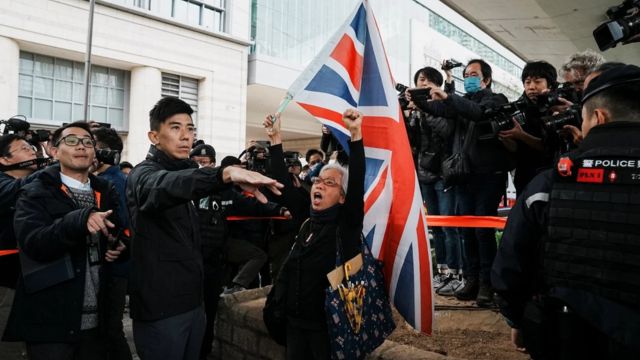The British government has sought consular access to Hong Kong media tycoon Jimmy Lai Chee-ying, reiterating that he is a citizen of the United Kingdom, amid an ongoing landmark national security trial. “We have absolutely done everything, and we continue to ask for consular access for Jimmy Lai … we are very comfortable and certain that he is indeed a British citizen,” Minister of State for Indo-Pacific Anne-Marie Trevelyan said during a parliamentary debate in London on Monday. The debate was sparked by the beginning of Lai’s trial, which has drawn media attention across the world. Lai, the 76-year-old founder of erstwhile tabloid Apple Daily, is combatting collusion charges that could lead to him spending the rest of his life in jail. He faces three charges relating to sedition and collusion with foreign forces for allegedly drawing international sanctions against authorities and inciting public hatred in the wake of anti-government protests in 2019. Several Western governments called on Monday for Lai’s immediate release, while observers from at least 10 consulates – including the United States, United Kingdom, Australia, Canada, New Zealand and Switzerland – were present in court during the trial. Responding to questions from lawmakers, Trevelyan said she was “able to help him get a new passport earlier in the year because his old one had run out; we worked with the Home Office to ensure that”. However, she said the British government has been left puzzled by Hong Kong authorities’ failure to recognise Lai’s British citizenship. “We will continue to press for consular access to Lai, which the Hong Kong prison authorities have repeatedly refused. China considers anyone of Chinese heritage born in China to be a Chinese national. It does not recognise other nationalities and therefore considers Lai to be exclusively Chinese,” said Trevelyan. She also pointed out “shocking attempts to dissuade, make fearful and stop Jimmy Lai’s legal teams here in the UK”, amid claims of cyber harassment from Beijing. However, Trevelyan declined to say whether the British government would issue new sanctions against Hong Kong officials over the trial. On Sunday, British Foreign Secretary David Cameron made the highest-profile intervention to date on the eve of the trial, saying he was “particularly concerned at the politically motivated prosecution of British national Jimmy Lai”. “As a prominent and outspoken journalist and publisher, Jimmy Lai has been targeted in a clear attempt to stop the peaceful exercise of his rights to freedom of expression and association,” said Cameron, who met Lai’s son Sebastien last week. The United States and Canada have also criticized the trial. Last week, Canada’s Senate and House of Commons passed identical motions, through unanimous consent, calling on Hong Kong’s authorities to release Lai and halt prosecution of the cases against him. In Beijing, Ministry of Foreign Affairs spokesman Wang Wenbin rejected the criticism and defended the hearing, accusing the United States and Britain of “gossiping” and “politically manipulating” the trial. “The United States and the West put the rule of law on their lips, but use Jimmy Lai’s case to destroy Hong Kong’s rule of law and judicial independence, providing ‘support’ to suspects without caring for right and wrong,” Beijing’s office in Hong Kong said.
Several Western governments called on Monday for Lai’s immediate release, while observers from at least 10 consulates – including the United States, United Kingdom, Australia, Canada, New Zealand and Switzerland – were present in court during the trial
Advertisement
End of Article


)

)
)
)
)
)
)
)
)



